Coordinateurs
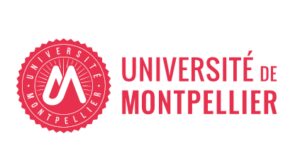
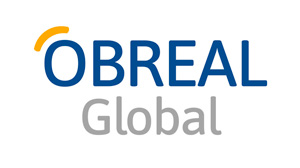
OBREAL Global has a long experience in managing EU projects in conjunction with and beyond its university membership. This has primarily entailed EU educational projects under the LifeLong Learning Programme - EMA4 and EMA3 programmes – and currently the Erasmus+ programme and Horizon2020 - connecting higher education actors in Europe and Latin America and contributing to the further development of the Latin American Higher Education Space. For example, OBREAL/GLOBAL has been a partner in the EMA3 ‘VALUE’ project and the ‘Cooperation for the Collaboration on Doctoral Education project (CODOC) which was a cross-regional project involving Asia, Southern Africa and Latin America. OBREAL/GLOBAL has been active in other cooperation fields in Latin America (Central America and Colombia), such as telecommunications, where it also receives EC funding. As a major structural project, OBREAL Global has co-coordinated, together with the European University Association, the ALFA PUENTES (2011-14) project that has gathered together more than 16 University Associations from LA and 5 from Europe in the objective of consolidating regional harmonisation in Higher Education. This project has been a predecessor project to CAMINOS (Erasmus+ CBHE, 2016-19), which built upon the outputs of PUENTES. OBREAL/GLOBAL was also a partner on the project ‘HICA’, a structural project for Central America, funded by the Erasmus+ (CBHE, 2015-18) that aimed at supporting curricula reform and innovation. In 2018, OBREAL Global supported the Association of Colombian Universities (ASCUN) to win and co-coordinate the MIMIR ANDINO project (E+ CBHE) to modernise university management of innovation and research in South American Countries predicated upon European good practice in the European Research Area. Currently, it also co-coordinates the VITAGLOBAL (E+ CBHE) project that will contribute to local development by enhancing study programmes in food science and, specifically, viniviticulture, which are of strategic economic importance in Europe, South America, South Africa and Georgia. In addition, OBREAL Global is currently leading a service Contract (Harmonisation, Quality and Accreditation Initiative 2: EAC/19/2019) to support the development of a harmonised quality assurance and accreditation systems for higher education at institutional level, national, regional and Pan‐African continental level. Moreover, OBREAL Global is launching a series of activities together with its members in India (the Indian Institutes of Technology) to generate Strategic South-South-North cooperation by promoting policy dialogue and research cooperation between institutions in India, Africa and Latin America. In addition to offering in-house expertise on topics such as internationalisation of higher education and mobility, ICT and digitalisation of universities, research management, entrepreneurship and academic innovation, OBREAL Global has extensive experience in leading project quality assurance and monitoring as well as EU grant management and dissemination campaigns.
Universités
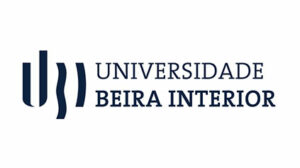
The University of Beira Interior (UBI) is one of the most recent public universities in Portugal that has been consolidating itself as landmark institution in the educational, research, innovation, business, entrepreneurship and informatics fields. Over the years, it is notable a positive evolution of the number of available educational programs and the enrolled students. The statistics show that enrolled students already surpassed the 8000 national students from across the country and 300 international students from all over the world. In order to provide a solid educational and scientific background to its students in different fields of knowledge, UBI currently presents 32 first cycle degreerprograms, 40 second cycle degree programs, and 33 third cycle degree programs. The University presents various learning and research facilities, structured in 5 Faculties - Faculty of Sciences, Faculty of Engineering, Faculty of Social and Human Sciences, Faculty of Arts and Letters and Faculty of Health Sciences - and 14 Research and Development (R&D) units that had been carefully implemented and they include several domains of knowledge, such as: Aeronautics, Computing, Electromechanics, Health, Mathematics, Optics, Education, Psychology, Telecommunications, Textile and Paper materials, Management, Economics and Entrepreneurship. The Faculty of Social and Human Sciences includes the Department of Management and Economics responsible for all the courses related to business (from bachelor to PhD.). It is composed by a considerable number of academics specialized in the entrepreneurial field. These elements have been publishing in well-ranked business journals and have been participating in European and national projects related to entrepreneuship. Some researchers are integrated in NECE Research Unit in Business Sciences, and more specifically in the research groups of Entrepreneurship, Competitiveness, and Innovation; Economics and Finance including energy economics. Regarding human resources, UBI has currently more than 1100 employees, of which more than 800 are professors and researchers. Internally, UBI has the Innovation and Development Office which is the technology transfer office. It supports all the administrative and financial management of R&D projects, helping the researchers in the negotiation, execution, and preparation of reports. It supports the research efforts of the University and enables the dissemination and implementation of the technologies developed in the UBI into the market / industry, with the main purpose of developing new products and services to the society. This process also involves the evaluation of intellectual property, market potential analysis, licensing and commercialization rights as well as brokering deals with potential investors, which are functions of this office. R&D is one of the strategic and most important issues in UBI. The outstanding quality and expertise of our researchers is widely recognized. Our R&D units and services are strongly committed to reach high levels of achievement, in both teaching and research, for the benefit of the whole community. Results range from knowledge transfer, entrepreneurship, international R&D projects and consortia, up to spin offs based on the research findings of graduate students and researchers of UBI. As such, UBI stands out for its integration in several R&D projects and consortiums, and in the establishment of partnerships with other universities and firms, mainly through its internal CFIUTE office, which is responsible for bringing the university to the market and industry. Additionally, UBI is a main member of PARKURBIS which are science and technology parks, focused on knowledge transfer.
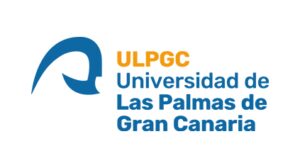
Universidad de Las Palmas de Gran Canaria
The ULPGC is a modern institution with a long academic track record, committed to quality, efficiency and modernity. Research activities reflect the multi-disciplinary nature of its 15 centres, 1 ascribed centre, and 36 Departments. ULPGC research includes cutting-edge projects in such wide-ranging subjects as oceanography, marine science, tourism, climate change, and others. The ULPGC has been the coordinator of three Erasmus Mundus action2 Projects: CANEM (2012); CANEM II (2013) and UNetBA Project (2013). Also the ULPGC was awarded with eight projects under Erasmus+ KA2 Strategic Partnerships and Erasmus + SPORT: MODCLIM Project (2014); UNICAH Project (2015); ReVET, MIND and PONCHO (2015); INSTART (2016); ARROW (2017); and MOVE Project (2017). ULPGC has 25 years of experience in organizing conferences related to tourism and promoting research in that field. Postgraduate studies in tourism began in 1996 together with the first Master's degree in Tourism Planning for Sustainable Destinations implemented in Spain.
Since then, undergraduate and graduate studies have expanded and improved, while a PhD program was also presented to the Spanish authorities. ULPGC has also developed an outstanding level in tourism research. More than 150 researchers contribute to making our University the only center of higher education that is within the top 100 tourism research centers on the Shanghai list. Currently, around 15 students from different countries are developing their doctoral research in the TIDES program in different fields of sustainable tourism, including various topics related to human development. Tourism development and human development supported by tourism have been the main axes of the ULPGC in the field of development cooperation. Around 20 cooperation projects in African countries (Morocco, Guinea Bissau, Senegal, Libya, Egypt, Mauritania, Cap Verde) and South and Central America countries (Venezuela, Cuba, Ecuador, Argentina, Chile, Colombia, Brazil, Guatemala) have had tourism-driven human sustainable development at the very core of their objectives. Finally, it is worth mentioning the experience in inclusive tourism acquired during the implementation of the 3-year ECOS Project, funded by the EU and developed together with several NGOs dedicated to promoting social inclusion. The University of Las Palmas de Gran Canarias has carried out various research projects in the area of Circular Economy (CE). In particular, it has coordinated a number of projects which have led to complex technological, CE and developments in the field of circular economy. ISLANDAP Project “R + D + i TOWARDS AQUAPONIC DEVELOPMENT IN THE UP ISLANDS AND THE CIRCULAR ECONOMY-ISLANDAP” is a project belonging to the INTERREG VA MAC 2014 Program- 2020 (Operational Program for International Cooperation) and financed by the European Regional Development Fund. The main objective of the project is to promote R+D+ i in aquaponic sustainable systems of production appropriate to the specificities of ultra-peripheral and regional islands and create a multidisciplinary network of work that promotes sustainable primary production, the revaluation of bio-resources, biotechnology, the circular economy and education in those regions. The aquaponic production of fish and plants is the central axis of development and an example of direct application of the circular economy in regions where the generation of organic by-products is variable and dispersed, and its reuse is currently not very competitive. In short, ISLANDAP Project activities have focused on providing solutions for alternative uses, addressing all the steps, from the generation and quantification of the waste to its biochemical evaluation and experimental testing, passing through the necessary micro logistics for its movement and economic study of the entire process.
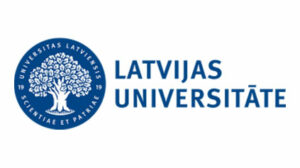
University of Latvia (UL) with more than 15,000 students, 13 faculties offering 140 programmes and 20 research institutes is one of the largest comprehensive research universities in the Baltic States with educational and research potential in humanities, social and natural/life sciences. The UL defines three main strategic directions of development: quality of studies, research excellence, strengthening scientific and academic capacities. Faculty of Geography and Earth Sciences of the University of Latvia provides academic studies in geography, geology and environmental science. Faculty offers higher academic education at three levels of studies: bachelor’s, master’s and doctoral study programmes, as well as professional training in teachers’ study programme in geography and natural sciences, and also professional higher education master’s study programme of spatial development planning. The main research field of the Faculty of Geography and Earth Sciences is research on environmental problems and sustainable development. Research in mentioned directions concentrates in the Department of Environmental Science. Research capacity of the Faculty of Geography and Earth Sciences at the international science evaluation of the research in Latvia has been estimated as excellent and the faculty has been ranked among the 15 top research institutions in Latvia. The Department of Environmental Science consists of 55 faculty members, among whom 51 have been elected by the UL – 9 professors, 7 associate professors, 18 assistant professors, 2 lecturers and 15 assistants (elected as senior researchers and researchers). The research group from the UL linked to the project consists of versatile professionals with extensive academic and practical experience in the field, social experimental works as well as the management and practical participation in various projects linked to sustainable consumption and production, environmental governance and environmental impact assessment. Progressive project management skills of the research group members are combined with the academic experience and overall abilities are used to enlarge the scope of innovative environmental studies in mutual collaboration with other scientific groups also involving excellent students.
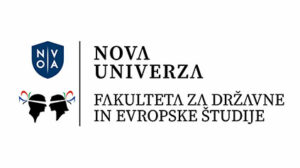
Faculty of Government and European Studies is an independent and private higher education institution established and owned by the independent and private Institute for Constitutional Order and Human Rights. Faculty's head office is located in Kranj, a developing city just half an hour drive from the capital of Slovenia. Faculty also has two branches, which are located in Ljubljana and in Maribor. Lectures are help in all locations. Since 2017. Faculty of Government and European Studies is a proud member of Nova University, a private higher education University, based in Nova Gorica. New University is founded as a private higher education institute with elements of public-private partnership established by concession and other public funds allocated for international exchanges and research. The mail goal of New University is to become an elite educational institution based on the quality of study programmes, application selection and international comparability. To achieve this goal we will respect the highest ethical standards on all areas. The university is engaging in the international higher education space by promoting student, academic and non-academic staff exchanges with the partner institutions from abroad. The university also collaborates with the latter in different forms of higher education and international research projects. The Faculty's success lies in its strong and acclaimed academic staff who maintains a student-friendly environment and gives an emphasis to combining theory and practice. In order to show the students various aspects of theory in practice, the Faculty organises guest lectures led by foreign experts or Slovenian experts who live and work abroad. In 2014 the Faculty has obtained the Erasmus Charter for Higher Education to guarantee international exchange of students, lecturers and staff members, thus giving all involved another option to those, who wish to enrich their educational experience abroad. All study programmes at the Faculty are state-approved and they specialise in public administration and diplomatic and international studies. The study programmes correspond and develop according to the need of national and international environment and cover all three Bologna cycles. In the first undergraduate cycle or bachelors (LL.B.) it offers two study programmes: LL.B. Public administration and LL.B. Administrative law. In the second postgraduate cycle or masters (LL.M.) it offers two study programmes: LL.M. Public administration, LL.M. International and diplomatic studies. In the third cycle it offers the following study programmes: PhD Public administration, PhD International and diplomatic studies.
PME

Green Berry Solution (GBS), the interface between consultancy, training and management services for Research Development, Innovation and Circular Economy. GBS, the gateway between European institutions and stakeholders to remove barriers to innovation and make it easier for public and private sectors to innovate together beyond sustainability going trough circular economy. Our guidance is designed to help people understand and access the funding opportunities available, in order to innovate and grow both in the EU and abroad. Key to GBS is the ability to genuinely listen and empathy. It is essential in engaging the stakeholders and understanding how they are affected by innovation they have to implement. The ability to develop strategies – both external and internal – and to put in place programmes to achieve innovative goals that are well executed is key to success for GBS. GBS coordinates and provides strategic advice, training and consulting for industry, university and local authority. It has developed a unique expertise in assisting professionals to build and support their participation and positioning in the EU institutional mechanisms. With an expertise in industry, university and local authority which allowed GBS to see link and existing gap between all stakeholders along the all circular economy value chain. To be effective, GBS have understands the business and is fully conversant with how company makes money, what makes its business model work, and what are its mainstream risks and opportunities. What’s more, we come up with proposals that may achieve more sustainable outcomes in parallel of company’s commercial success. GBS is able to report impact and to understand of data analysis and metrics. The right targets on the key issues can be valuable tools to drive the company’s performance for a green future. GBS, more than 15 years of experience in European Corporate Responsibility, circular economy, sustainability and research & innovation. Our aim must be to make your company as sustainable as possible and as successful as possible.

ELUM d.o.o. has been supporting small and medium enterprises (SME) through creating sustainable business models, optimization of their business operations and clearing out strategies to achieve better results. To provide expert support through 360-degree approach we are cooperating with our long-term business partners that are covering different fields of business – offline or online. We offer business consulting, project management and several online business solutions, including online education in marketing and sales. Our expertise lies in project evaluation, planning and optimization, preparing business plans to attract potential investors, setting up or upgrading business structures for brick-and-mortar owners and much more. Our aim is to develop smart business models that incorporate sustainable business practices. Owner of the company is European Certified Sustainability Manager incorporating this knowledge into working with SMEs. The purpose of the certification program from ECQA was to build knowledge on how to run a business in more sustainable way putting into perspective all aspects of business. Being active within entrepreneurship for the last 10 years has given us important knowledge on how to build own business from ground zero and seek for good practices all around the world. Especially in the time of Covid-19 focus shifted to digital world which brings in new opportunities to develop innovative business models and reaching out towards more sustainable ways of working together online. That was the main focus of the company within the last year. We offer support on building educational programs for individuals, SMEs or other institutions involved. That can be part of how to include our expertise into this project as well. The company and its team can provide support with creating entire online architecture of the educational hub, collecting all the educational materials at one place, putting it into different formats to create interactive environment for everyone included
.
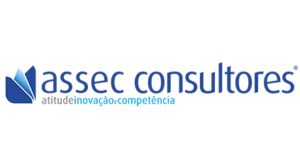
ASSEC Consultores
Founded in 1989 ASSEC is a company focused on creating value for its customers. Our team consists of more than 30 highly qualified technical collaborators, whom’s 13 are part of the permanent company’s staff, distributed by several areas of expertise, namely economists, managers, engineers and accounting experts, among others. Throughout our existence, we have invested in a personalized relationship, in order to capitalize the loyalty of a significant number of customers and progressively expand the intervention’s areas. Currently, our areas of intervention include engineering and management consultancy, professional training, accounting and tax advice. Since 1998 we have been an entity certified by DGERT (Portuguese institution that certifies training institutions) for training activities. We prepare vocational training plans, according to the global strategy of companies or other organizations, seeking to provide their employees with skills appropriate to the requirements of their activity. We have a pool of qualified trainers in different key areas. We support organizations in their certification process with certifying entities, offering you a personalized service and the experience of a multidisciplinary team. In addition, we develop content and technological solutions for specific projects to raise awareness in areas such as energy, environment, health (ex: www.enerkids.pt) We intend to develop e-learning training, so this project is an important opportunity for us.
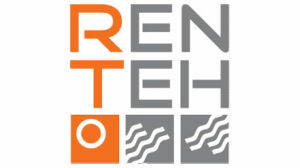
RENTEH
Renteh business focus is on development and implementation of renewable energy, integrated waste management projects and biobased industries. Renteh develelops and invests in sustainable business projects with reduced ecological and carbon footprint. Renteh position itself as technology developer and integrator. Company's competitive advantage is local knowledge and expertise, advanced innovative technologies and financing. From sustainable business idea to fully permitted and bankable project. Some of the expertise of the company includes: - RDF/SRF quality assessment of domestic material recovery facilities with focus of local feedstock supply for waste to energy systems, legal framework development options, market prospects and regional landfill potential for increased material recovery within circular economy in Latvia - Refuse derived fuel and solid recovered fuel (RDF/SRF) gasification application for power and heat generation for small scale industrial self-consumption – Technological scoping study for municipal waste collection, sorting, material recovery facility and waste-to-energy based on the concept of village decentralized system, biocomposting and logistics for centralized collection of recyclables and RDF for energy recovery in Brazil. - Development and implementation of capacity building and training programme on EU environmental policy design, legislation development, extended producers responsibility, renewable energy policy design and stakeholder participation for environmental authorities, local municipalities and non-governmental groups in Kazakhstan and Uzbekistan. - Aktobe city municipal solid waste management feasibility study – Technological scoping study, pre-engineering design, technical feasibility assessment, development of optional financial scenarios including PPP root according to new amended national legislation in Kazakhstan. - Taraz city green industrial zone development feasibility study – Technological scoping study for municipal waste material recovery facility and waste to energy coupled with heat off take for light building material production, closed ecosystem fisheries and fish processing integrated with fish/animal food industries.
Design of core business plans for each of the industries. Pre-design and overall material and energy balance of the industrial zone in Kazakhstan.
Association
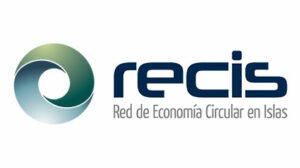
Red de Economia Circular de las Islas
The Circular Economy Network in Islands (RECIS) is a non-profit association (N.I.F. G76335058), created in 2019 under one of the projects regarded Circualr Economy lead by the University of Las Palmas de Gran Canaria (ULPGC).
Established as a Circular Economy Network on Islands, with a nerve center in Gran Canaria and international projection. Its activities, all belongs circular economy development, include those promoting and stimulating research, cooperation in specialized multidisciplinary training, the generation of knowledge & the communication, coordination and transfer of the knwoledge to social agents. RECIS has been promoted and created by researchers from different areas of knowledge of the ULPGC, with the ambition to grow and project within it and towards other centers and institutes in the Canary Islands, as well as to other islands of the RUPS and any other insular territory that share the same problems and concerns in relation to the 2030 Sustainable Development Goals. RECIS, as a contact organization between university experts and societal agents and companies, has the following formal objectives: a) To be a permanent network of multidisciplinary cross-border and transnational circular economy work b) Encourage and support the creation of links between waste generators, waste applicants, experts, researchers and the Administration to solve the problem of waste generation within the framework of the circular economy, through cooperation between public entities and / or private, national or international ones. c) Promote the implementation of actions and events aimed at research, training and awareness of the need to manage waste and bioresources in a circular economy framework, being able to carry out studies, research and reports, as well as contributing to education and public awareness. c) Promote and collaborate in the dissemination of scientific results through tasks of organization or participation in seminars, courses, congresses and conferences, among other scientific meetings. d) Promote contacts with other networks or entities to carry out networking projects, as well as promote joint projects between the University and the company within the framework of the circular economy. e) Promote sustainable activities, the development of responsible tourism and integrated waste management among other circular economy aspects. At the momment RECIS involved 10 researcher, 5 students and 1 staff. RECIS is also participated by Canarian Government (Economy, Knowledge and Emploiment Councelor) and well supported by Excmo. Cabildo Insular de Gran Canaria (Responsible of Environmental Areas), which are among the areas in charge of the sustainability and circular economy island development by the comming years.


